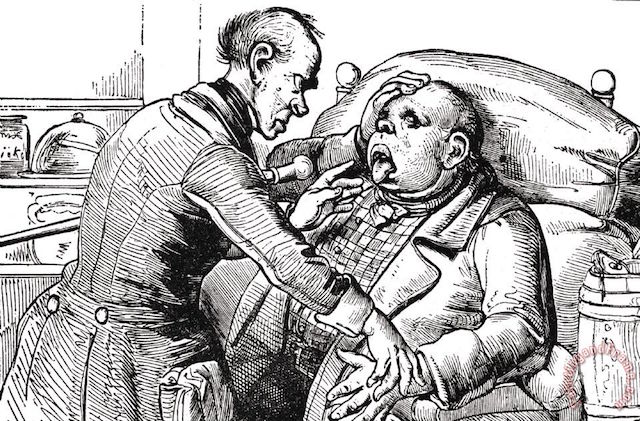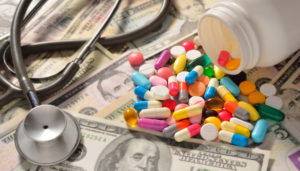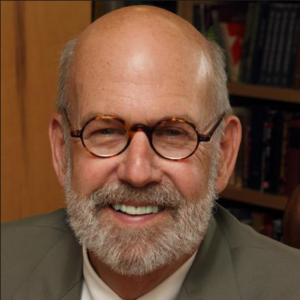
Doctor And Patient
In a free society, people have the right to decide what to do with their own bodies. If you want to take something that “orthodox” medicine says you shouldn’t, this decision should be up to you. If the government can ban “dangerous drugs,” why not dangerous ideas too?
As the great Ludwig von Mises points out, “Opium and morphine are certainly dangerous, habit-forming drugs. But once the principle is admitted that it is the duty of government to protect the individual against his own foolishness, no serious objections can be advanced against further encroachments. A good case could be made out in favor of the prohibition of alcohol and nicotine. And why limit the government’s benevolent providence to the protection of the individual’s body only? Is not the harm a man can inflict on his mind and soul even more disastrous than any bodily evils? Why not prevent him from reading bad books and seeing bad plays, from looking at bad paintings and statues and from hearing bad music? The mischief done by bad ideologies, surely, is much more pernicious, both for the individual and for the whole society, than that done by narcotic drugs.
These fears are not merely imaginary specters terrifying secluded doctrinaires. It is a fact that no paternal government, whether ancient or modern, ever shrank from regimenting its subjects’ minds, beliefs, and opinions. If one abolishes man’s freedom to determine his own consumption, one takes all freedoms away. The naive advocates of government interference with consumption delude themselves when they neglect what they disdainfully call the philosophical aspect of the problem. They unwittingly support the case of censorship, inquisition, religious intolerance, and the persecution of dissenters.”
This is much more than a theoretical issue. The FDA controls new drugs with an iron fist. It bans drugs that people who live in other parts of the world can get and have passed their countries’ tests for safety. One example is ambroxol, a very effective cough medicine widely available in Europe: “Ambroxol is a mucolytic medicine used to treat respiratory diseases associated with excessive mucus secretion. Its onset of action starts after 30 minutes of oral administration. It works by reducing the thickness of the mucus, making it easier to cough out.”
Before a new drug wins approval, it must undergo years, often decades, of testing. These tests cost millions of dollars. Only Big Pharma can afford to pay for them. The FDA thus makes it impossible for people who invent new drugs but do not have much money to market their products, Untold lives have been lost. As Dr. Lisa Casanova says,
“In the United States people who need medications to treat illness are dependent on the mercy of Food and Drug Administration (FDA). It serves as a gatekeeper to drug services, deciding which medications will and will not be available to consumers. The FDA demands that developers and manufacturers of drugs furnish data on a drug’s efficacy and side effects, which it uses to make its determinations.
Some organizations are demanding a change in the process to permit terminally ill people to gain speedier access to possible cures. Their demands have so far been rebuffed by regulators.
Drug testing for FDA approval usually consists of three phases of trials, with each phase involving larger numbers of patients. In Phase 1, a medication is given to small numbers of healthy individuals who are observed for the development of acute side effects. Phase 2 expands to include the population of patients for which the drug is intended and may consist of several hundred people. Phase 3, which can involve a thousand or more patients, includes double-blind, placebo-controlled trials which both measure efficacy and monitor for adverse effects.
After these studies, the FDA still must evaluate the data and deliberate over approval. The entire process can take years. For chronically ill patients, the wait may mean a loss of quality of life or a progression of disability. But for the terminally ill, the time it takes for drugs to wind through this process can mean the difference between life and death.”
 You might object, “Isn’t it important for people to be protected from unsafe drugs? What if the new drugs don’t help people? Hasn’t the FDA saved lives?” It’s far likelier that the FDA has killed more people than it has saved.
You might object, “Isn’t it important for people to be protected from unsafe drugs? What if the new drugs don’t help people? Hasn’t the FDA saved lives?” It’s far likelier that the FDA has killed more people than it has saved.
Moreover, there is an even more critical issue at stake. Why should the government decide whether a drug is too risky to sell? In a free market, people can make their own assessment of this. As Dr. Casanova says,
“Based on risk preferences, patients seeking treatment for a disease can roughly be divided into two groups. One group consists of those who are willing to try untested or barely tested drugs. This may be because they have run out of meaningful therapeutic options (their disease is refractory to treatment with available therapies), or existing therapies don’t do enough for their disease to give them the quality of life they desire.
They may also feel that having people who are willing to try untested drugs first is an important part of advancing the knowledge and science of disease therapy. The second group consists of patients who are more risk-averse. These patients do not want to take drugs unless they have been tested and their risks and benefits are defined to some extent (i.e., the drugs have been tested on other human beings first and the outcomes of this testing are known). Although it tends to be overlooked, there may be seriously or terminally ill patients who fall into this second group.
Some people in the first group of patients might want access to drugs that have not gone through the clinical trial system. But since they are willing to tolerate risk from drugs that have unknown effects, they also provide a pool of people who are willing to participate in clinical trials, for their own benefit and the greater benefit of others with the same illnesses, because they are willing to go first.”
Medical freedom covers much more than new drugs. Suppose that you have ideas on how illnesses should be treated. You can’t set up a medical practice unless the government licenses you. If you don’t have a license, you are “practicing medicine without a license,” a very serious crime. To practice medicine, you must go to a government-approved medical school. These schools restrict admissions to limit the number of new doctors. This enables doctors to charge people higher prices than would prevail in the free market. Here are some examples of what California considers “practicing medicine without a license:” “Someone uses unconventional or homeopathic methods, e.g., hypnosis, acupuncture, herbal remedies to “treat” specific ailments. Even if they don’t claim to be a doctor, they can still be criminally charged for unlawfully diagnosing and treating conditions:
* A licensed physician emigrating from another country offers treatments to other immigrants from his homeland at a low cost because they can’t afford healthcare. He’s licensed, but not in California;
* A licensed physician from another state treats a California resident via telemedicine. Again, not explicitly licensed in California;
* An entrepreneur who is not a doctor buys a medical practice from a physician then hires that physician to run the practice. While only a licensed physician treats the patients, the practice’s new owner violates BPC 2052 because he is not licensed.”

Llewellyn H. Rockwell, Jr.
The tyrannical domination of medicine has shut down many promising treatments for life-threatening illnesses, such as Laetrile and, much earlier, Krebiozen for cancer. Cancer is one of the deadliest and most feared illnesses, so naturally the FDA and the agency’s Big Pharma bosses have tried to suppress free speech about promising treatments for this illness that don’t conform to allopathic orthodoxy. “Christian Brothers Contracting Corp. President Jason Vale was sentenced June 18 to 63 months in prison and three years of supervised release for selling Laetrile, a bogus cancer cure, the U.S. District Court of the Eastern District of N.Y. ruled. Laetrile, also known as amygdalin, vitamin B-17 and ‘apricot pits,’ is ‘a highly toxic product that has not shown any effect on treating cancer,’ FDA says. Vale was convicted last July of three counts of criminal contempt for violating a 2000 court order to cease sale and promotion of Laetrile (1’The Tan Sheet’ July 28, 2003, In Brief).”
Even earlier, Dr. Andrew Ivy, one of the most distinguished medical researchers in the world, was prosecuted for fraud in 1965 because he promoted Krebiozen, a drug that the FDA experts said was worthless. Although he was acquitted, the trial ruined his professional reputation. The New York Times mentions the trial here, in a 1965 story: “CHICAGO, April 3 — Dr Andrew C. Ivy, who was considered to be among the nation’s most distinguished medical scientists, goes on trial Monday in the Federal District Court here on criminal fraud charges arising from his part in promoting Krebiozen.”
Let’s do everything we can to promote medical freedom and end the government’s tyranny!
Written by Llewellyn H. Rockwell, Jr. for LewRockwell.com ~ September 16, 2024
